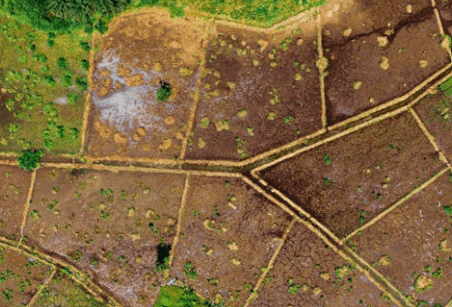Subdividing land is a complex process that involves numerous steps and careful planning. Understanding the timeline for this endeavor is crucial for potential developers and landowners in Naples, Florida. “How long does it take to subdivide land in Naples?” This question is often at the forefront of any regional land development discussion. This blog delves into the factors affecting the timeline of the subdivision process, covering local regulations, permitting requirements, and best practices for transforming raw land into ready-to-build lots. How long does it take to subdivide land in Naples? Let’s delve into the details and uncover what impacts the timeline.
Steve Daria and Joleigh, experienced real estate investors in Naples, Florida, offer valuable insights into the subdivision process in this region. These seasoned professionals emphasize the importance of understanding local regulations and securing appropriate permits as crucial timeline factors. Their expertise highlights how thorough planning and adherence to best practices can significantly expedite the journey from raw land to ready-to-build lots.
What Does Subdividing Land Mean?
Subdividing land entails dividing a larger parcel into smaller lots, facilitating individual sales or development opportunities.
This process can appeal to property owners looking to maximize their land’s value.
However, it’s not as simple as drawing lines on a map; there are several legal, regulatory, and logistical considerations to keep in mind.

Legal Implications
Before you begin, it’s crucial to understand the legal requirements for subdividing land in Naples.
You must comply with local zoning laws, land use regulations, and environmental guidelines.
Failing to do so can result in delays and potential penalties.
Zoning Laws
Zoning laws determine land usage, and in Naples, these regulations are precise and must be followed diligently.
They determine the minimum lot size, land use restrictions, and other important factors.
Consulting a zoning expert can help you navigate these complexities.
Environmental Regulations
Naples is known for its beautiful landscapes and ecosystems.
Environmental regulations ensure that these natural assets are protected.
You’ll need to conduct environmental impact assessments and possibly secure permits for land alterations.
Get Started: Get Your Cash Offer Below…
We are direct land buyers. There are no commissions or fees and no obligation whatsoever. Start below by sharing where your property is and where we can send your offer…
Steps to Subdivide Land in Naples, Florida
Dividing land into smaller plots involves a series of well-planned and carefully executed steps. Here’s an overview of the essential stages in the process:
Initial Consultation
The first step is to consult with a land surveyor or a land-use attorney.
They can provide invaluable insights into the feasibility of your project and guide you through the necessary steps.
Feasibility Study
A feasibility study assesses the potential of your land for subdivision.
This includes evaluating the topography, soil quality, and existing infrastructure.
The study helps identify any obstacles that could impede your project.
Submit Preliminary Plat
Once the feasibility study is complete, you’ll need to submit a preliminary plat to the local planning department.
This document outlines your proposed subdivision and is subject to review and approval.
How Long Does it Take to Subdivide Land in Naples, Florida?
One of the most common questions is, “How long does it take to subdivide land in Naples?” The timeline can vary based on several factors, including the complexity of the project and the efficiency of the local authorities.
Average Timeline
On average, the process can take anywhere from 6 to 12 months.
This includes time for feasibility studies, legal consultations, and obtaining the necessary approvals.
Factors Affecting Timeline
Several factors can influence the timeline.
These include the size of the land, the number of lots being created, and any environmental considerations.
Additionally, delays can occur due to public hearings or objections from neighboring property owners.
Expedited Processes
In some cases, expedited processes are available.
For instance, if your subdivision meets certain criteria, you may qualify for a streamlined review process.
It’s worth exploring these options to shorten the timeline.
Strategies for a Smooth Subdivision Process
Successfully subdividing land requires careful planning and effective strategies. Here are some tips to help you along the way:
Hire Professionals
Engaging experienced professionals, such as land surveyors, attorneys, and planners, can streamline the process.
Their expertise can guide you in sidestepping common pitfalls while ensuring adherence to local regulations.
Prepare Thorough Documentation
Having thorough and accurate documentation is crucial.
This includes site plans, environmental assessments, and any required permits.
Proper documentation can prevent delays and facilitate a smoother review process.
Stay Informed
As regulations and requirements may evolve, staying informed is crucial.
Subscribe to local planning department updates and maintain open communication with the authorities to ensure you’re always in the loop.

Costs Involved in Subdividing Land
Grasping the associated costs is essential for effective budgeting and financial planning. Here are some key expenses you can anticipate:
Surveying and Planning Fees
Hiring professionals to conduct land surveys and create site plans is one of the initial costs.
The fees may fluctuate depending on the project’s complexity.
Legal Fees
Legal consultations and documentation are another significant expense.
Attorneys can help with zoning issues, permit applications, and compliance with local regulations.
Permit and Application Fees
You’ll need to pay various fees for permits and applications.
These can include fees for environmental assessments, zoning changes, and subdivision approvals.
Common Challenges and How to Overcome Them
Subdividing land presents certain challenges, yet awareness of potential issues can aid in preparation and solution-finding.
Zoning Issues
Zoning issues are one of the most common challenges.
If your land doesn’t meet the zoning requirements for subdivision, you may need to apply for a zoning variance or change.
Environmental Concerns
Environmental concerns can also pose challenges.
Conducting thorough environmental assessments and working with experts can help mitigate these issues.
Public Opposition
Public opposition can arise significantly if your subdivision impacts the local community.
Actively engaging with the community and addressing their concerns can facilitate a smoother process.
Conclusion
Understanding “How long does it take to subdivide land in Naples, Florida?” is critical for anyone considering this venture. Typically, the process takes between 6 to 12 months, influenced by factors like project complexity and local regulatory procedures. By staying informed, hiring experienced professionals, and preparing thorough documentation, you can streamline the process and effectively manage the timeline.
**NOTICE: Please note that the content presented in this post is intended solely for informational and educational purposes. It should not be construed as legal or financial advice or relied upon as a replacement for consultation with a qualified attorney or CPA. For specific guidance on legal or financial matters, readers are encouraged to seek professional assistance from an attorney, CPA, or other appropriate professional regarding the subject matter.
